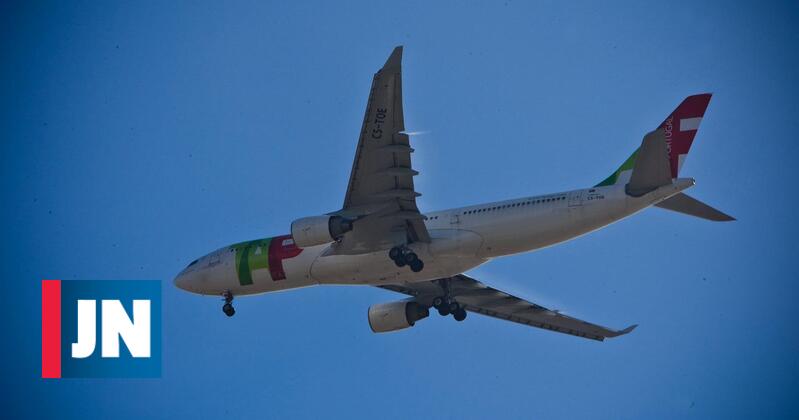The Chairman of the Executive Committee (CEO) of TAP said this Tuesday, in Parliament, that the only criterion for increasing the road width at Porto Airport is that the solutions found are “profitable”. Kristen Ormeyer-Widner pleaded “don’t think we’re not in good faith” with regard to the north and other parts of the country. TAP should start returning the money the state has earned in 2025.
“Any road that can make money, we open it immediately,” said the airline’s president, who was heard in the Committee on Economics, Public Works, Planning and Housing. He added “there is no hidden agenda” in this regard, and agreed that TAP has a duty to serve all regions as best as possible.
Christine Ormeyer-Widner has repeatedly stated that she will not comment on issues with “political” implications. However, in response to a question by Representative Carlos Guimarães Pinto, of Illinois, he said that as CEO of TAP, he “always wanted to do more and better” with regard to road widths from airports such as Porto or Funchal.
“We’re trying to do what we can given the limitations we’re facing,” Ormeyer-Widner stressed. “TAP is on the way to becoming efficient and sustainable, but we cannot become ‘low cost’. This is not our model,” said TAP’s Executive Committee Chairman.
Regarding the Funchal case, he emphasized that the company was “increasing the number of flights” because Madeira “is a very important destination during the summer.”
Of the 260 scheduled arrivals and departures at Francisco Sa Carneiro airport on Tuesday, only “46” (less than 20%) were on TAP-operated flights, MP Jorge Mendes of the PSD said. “I don’t see an arrival or departure to Brazil, the United States or South Africa,” he said, referring to countries with strong Portuguese communities.
Christine Ormeier-Widner ensured that on the day in question there were direct flights from Porto to Sao Paulo, Rio de Janeiro and New York. He committed to “increasing the frequency” of Invicta’s flights to Rio “in the near future”, stressing that Francisco Sá Carneiro airport “is very important not only for Porto and the northern region, but for the whole country”.
Start bringing money back to the state in 2025
The airline’s president also confirmed, in response to Carlos Guimarães Pinto, that she intends to return the money she has injected into TAP to the state “as soon as possible”, in line with other foreign companies in the sector. a job. However, he did not commit to a date.
At a subsequent hearing, TAP Chairman Manuel Bega said the company plans to start paying dividends to the state – the sole shareholder – within three years: “The expectation is that in 2025, we will start paying dividends, from the moment we start in achieving positive net results,” he said. The company’s support amounts to 3,200 million euros.
Ourmières-Widener emphasized that TAP’s sustainability and survival is “entirely feasible,” noting that it is “carefully optimistic” in the face of future challenges. However, he warned that “rising fuel costs and the rising US dollar are two obstacles that make it more difficult” to comply with the restructuring plan.
TAP CEO stated that Estimated fuel costs Around 300 million euros higher than it previously forecast and 200 million more than it forecast in 2019. He also ensured there was no “plan to make a collective surplus”, also acknowledging that although the company experienced “some gaps” in terms of employees, today it is “better prepared”. Than in the past to find talent.”
Left criticizes TAP for not listening to workers
Representative Jose Carlos Barbosa, from note, criticized the Right – and in particular the IL – for wanting to “liquidate” TAP. The socialist stressed that the restructuring plan already guarantees “the preservation of 6,800 jobs”, in addition to protecting “hundreds of thousands of indirect jobs” for the companies serving the company.
Antonio Tuba Gomez, from PSD – The party that, along with PS, requested the audience of Ourmières-Widener – emphasized that the “main reason” for not letting TAP fall was the Portuguese diaspora. According to the Social Democratic Parliamentarian, the “perception” of most Portuguese communities abroad is that the company “does not serve them”.
Andre Ventura, from it’s up, considered TAP to have a “duty” to “secure the roads to the north and islands,” a remark the company’s CEO agreed with. The MP also lamented the 25% reduction in crew salaries, also considering that the restructuring plan implies a “very significant” cut in the “time slots” available to TAP.
In addition to asking Ourmières-Widener about the Porto case and when TAP will return the money to the state, Guimarães Pinto, from I, and questioned the role played by the company. According to the deputy, this does not adequately serve all regions, and in Lisbon, the “slots” that are currently in the hands of TAP can easily be attributed to other companies that brought more people.
Paula Santos, from PCPHe wanted to know why the unions “did not hear” about the restructuring plan, stressing that it is the workers who “pay the bill.” The communist also stressed that of the 11 airlines restructured with plans drawn up by the European Commission, “only one survived”, arguing that Portugal should not “insist on the path of destruction”.
Mariana Mortagua, from is being, he noted that the “fundamental political problem” about TAP is the fact that the European Commission – which the parliamentarian described as a “technocratic” entity – is recognized as having the legitimacy to determine what size a national airline should be. The hardliner also stated that TAP workers “do not know the restructuring plan.”
The CEO of TAP – who described herself during the hearing as “very realistic” – said she understood workers’ demands regarding salary cuts. But he cautioned: “It’s not because we fly 90%. [dos números] 2019 said that our financial position is good,” noting that the company “has not recovered yet.”

“Wannabe internet buff. Future teen idol. Hardcore zombie guru. Gamer. Avid creator. Entrepreneur. Bacon ninja.”

